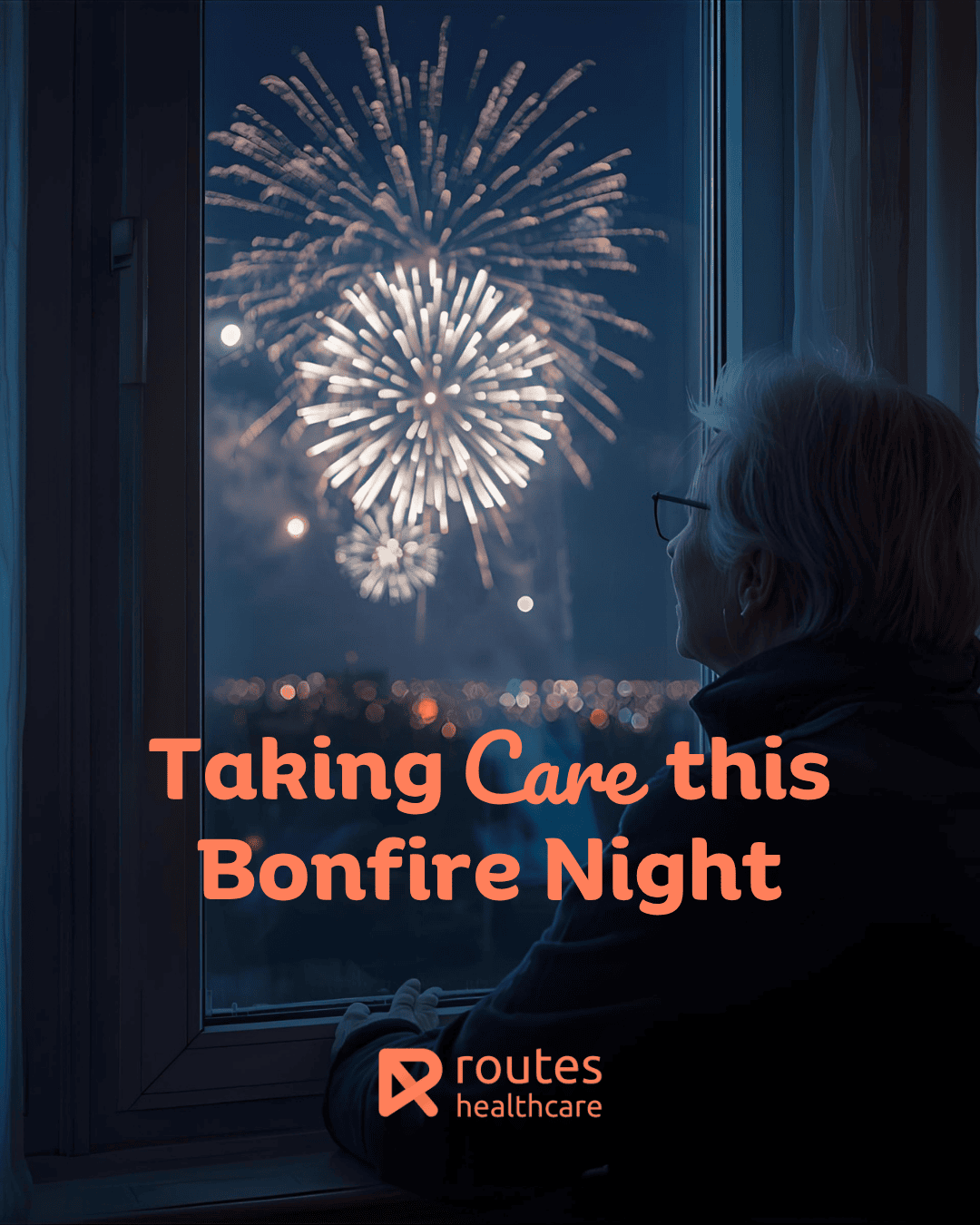Remember, remember the 5th of November. It's a night of sparklers, toffee apples, and displays that light up the sky. But while many of us love the spectacle, Bonfire Night can be genuinely difficult for some people.
Sudden loud bangs, bright flashes, and disrupted routines affect more people than you might think. Those living with dementia, PTSD, neurodivergence, or general anxiety around unexpected noise often find fireworks season stressful. And when pets are anxious, that stress spreads through the whole household.
If you're supporting someone at home who finds this time of year challenging, here are some practical ways to help everyone stay comfortable.
Our Bonfire Night Comfort Checklist
✓ Close curtains before dark
✓ Put on familiar music or telly
✓ Have warm blankets ready
✓ Make hot drinks throughout the evening
✓ Stay close and available
✓ Give pets their own quiet space
✓ Plan calming activities

Take time to prepare:
Surprises make anxiety worse. If someone knows fireworks are coming, they can prepare mentally rather than being caught off guard by the first loud bang. Let them know what's happening tonight. Even a simple "there'll be fireworks later, so it might be noisy for a bit" gives people time to process and prepare. For someone with dementia, gentle reminders throughout the day can help.
Create a calm space
Your home can become a sanctuary when the noise starts outside. Draw curtains before it gets dark: this softens both the sound and the flashes of light. Thick curtains work better than thin ones, and closing them early means you're already cosy when the fireworks begin.
You can also put on familiar sounds: The telly, radio, or a favourite playlist creates a competing noise that makes the bangs outside less jarring. Music or programmes they know well work better than silence.
Comfort matters
Physical comfort has a real impact on anxiety levels. Have warm blankets and layers ready. The combination of cold weather and stress can make people feel physically tense- warmth helps.
Make hot drinks throughout the evening. Tea, hot chocolate, or even just warm squash gives people something comforting to focus on. The routine of making and drinking something warm is calming in itself. And stay by their side: your presence matters. Just being in the same room, having a chat, or sitting together watching telly makes a genuine difference.
Distraction works
When anxiety starts building, shifting focus helps. Try putting t on a favourite film or programme: Something familiar and engaging can pull attention away from what's happening outside. Or for other activities, you can try a puzzle, cards, or a simple activity. Keeping hands and minds busy reduces the space for worry.
Even something as simply as sitting down and having a chat. Talk about tomorrow's plans, share a funny story, or just chat about nothing in particular. Ordinary conversation is powerfully reassuring.
Don't forget pets
A stressed pet affects everyone's stress levels. Give them their own quiet space away from windows, somewhere they feel safe and secure.
Consider pet-safe calming products if your vet has recommended them. But mostly, just check in on them. A calm pet helps create a calmer household overall.
Looking after yourself
If you're the one doing the supporting, remember you need looking after too. It's okay to feel tired or frustrated when someone you care about is distressed. Supporting an anxious person through several evenings of fireworks is genuinely hard work. Take breaks when you can. Ask for help if you need it. Looking after yourself isn't selfish - it's how you stay able to support others.
When you need extra support:
If you're managing at home but winter feels overwhelming, you don't have to do it alone. Our care teams work across Northern England, providing everything from a few hours' respite to give you a break, through to round-the-clock support for people with complex needs. We understand that sometimes you just need an extra pair of hands, or someone with clinical expertise to help manage medications, healthcare appointments, and daily routines.
We're here when you need us. Whether that's this winter or further down the line.

